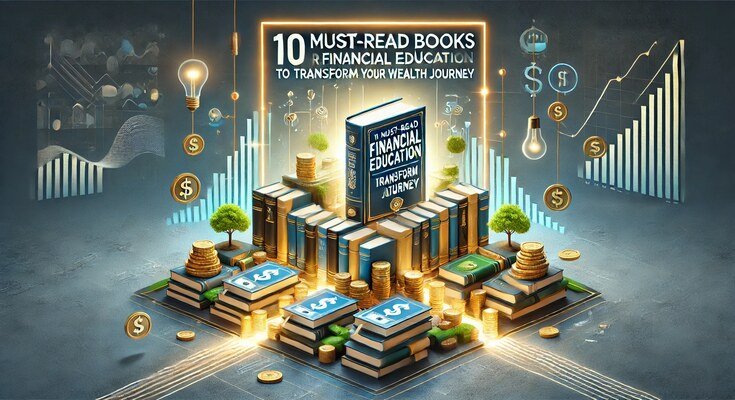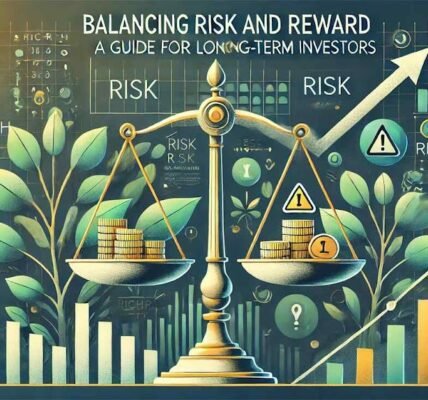
When it comes to building wealth and achieving financial independence, knowledge truly is power. Reading books for financial education is one of the best ways to gain insights into managing money, investing wisely, and creating a secure future. Whether you’re a beginner or someone looking to refine your financial acumen, this curated list of books for financial education will guide you every step of the way.
Why Financial Education Matters
Imagine being stuck in a cycle of paycheck-to-paycheck living, constantly worrying about bills and future expenses. Now picture breaking free of that cycle, making informed decisions about investments, and watching your savings grow. Reading books for financial education equips you with the tools and knowledge to make this shift.
Top 10 Books for Financial Education
1. Rich Dad Poor Dad by Robert Kiyosaki
This classic highlights the stark differences between the financial philosophies of Kiyosaki’s two father figures—his biological dad and his best friend’s dad. It’s perfect for beginners who want to understand the basics of wealth creation, the importance of assets, and the dangers of liabilities. It’s one of the most recommended books for financial education for beginners.
2. The Intelligent Investor by Benjamin Graham
Considered the bible of investing, this book delves into value investing principles. Graham’s emphasis on analyzing financial statements and understanding market psychology makes it a must-read among books for financial education for aspiring investors.
3. Your Money or Your Life by Vicki Robin and Joe Dominguez
This book isn’t just about budgeting; it’s about redefining your relationship with money. It teaches readers how to achieve financial independence while living a life aligned with their values. No list of books for financial education is complete without this transformative guide.
4. The Millionaire Next Door by Thomas J. Stanley and William D. Danko
Ever wondered what habits make millionaires? This book provides insights into how ordinary people achieve extraordinary financial success by living below their means and investing consistently. It’s one of the most relatable books for financial education out there.
5. Think and Grow Rich by Napoleon Hill
Though written decades ago, Hill’s principles for achieving financial and personal success remain timeless. This book focuses on mindset and goal-setting as critical components of wealth creation and is an essential read in the world of books for financial education.
6. The Psychology of Money by Morgan Housel
Housel’s engaging storytelling makes complex financial concepts easy to understand. This book explores how emotions and behavior impact financial decisions, making it a favorite for those who love relatable scenarios. It’s a standout among modern books for financial education.
7. The Simple Path to Wealth by JL Collins
Originally a series of blog posts for Collins’ daughter, this book simplifies the path to financial independence. It’s particularly helpful for understanding index funds and the importance of low-cost investing. Among books for financial education, this one shines for its simplicity.
8. I Will Teach You to Be Rich by Ramit Sethi
A modern classic, Sethi’s book provides a six-week actionable plan for managing your finances. From saving to investing, it covers everything with a conversational and humorous tone. It’s a must-read in the category of books for financial education.
9. Broke Millennial by Erin Lowry
If you’re a young adult just starting your financial journey, this book is for you. It addresses student loans, budgeting, and investing in a way that resonates with millennials. For beginners, it’s a top choice among books for financial education.
10. The Little Book of Common Sense Investing by John C. Bogle
Written by the founder of Vanguard, this book advocates for the simplicity of index investing. Bogle’s advice is a game-changer for anyone overwhelmed by the complexities of the stock market. It’s an evergreen pick among books for financial education.
Real-Life Example: How Anita Changed Her Financial Life
Anita, a 28-year-old software engineer, was overwhelmed by credit card debt and clueless about investing. She started by reading Your Money or Your Life and realized the importance of budgeting. Inspired, she moved on to The Simple Path to Wealth and began investing in index funds. Today, Anita is debt-free, saving aggressively, and on track to retire early, all thanks to the wisdom gained from books for financial education.
How to Get the Most Out of These Books
- Take notes while reading to capture key insights.
- Apply the lessons to your own financial situation.
- Revisit challenging concepts for better understanding.
- Share what you’ve learned with friends or family for mutual growth.
FAQs
Why should I read books for financial education?
Books provide in-depth knowledge and actionable advice, making them an excellent resource for improving financial literacy and achieving your goals.
Which book should I start with as a beginner?
Rich Dad Poor Dad is a great starting point, as it simplifies key concepts and provides a solid foundation among books for financial education.
Can these books help me invest better?
Absolutely! Books like The Intelligent Investor and The Simple Path to Wealth are especially useful for understanding investment strategies.
Are these books relevant for Indian readers?
While some concepts are universal, you may need to adapt certain strategies to align with the Indian financial landscape.
How often should I read financial books?
It’s a good idea to read one or two books for financial education a year to stay updated and continuously improve your knowledge.
Final Thoughts
Investing in your financial education is one of the smartest decisions you can make. Each of these books for financial education offers unique insights and practical strategies to help you navigate the complexities of money management and investing.
If you found this article helpful, visit Richpath.in for more in-depth resources on financial education and investing. Don’t forget to share this article with friends and family who might benefit from it, and let us know in the comments which book you’re planning to read first or suggest topics you’d like us to cover!
Read more –
How Long-Term Investments Can Secure Your Retirement
How to Plan Your Retirement in Your 40s with Just ₹1,000 Monthly Using Mutual Funds



